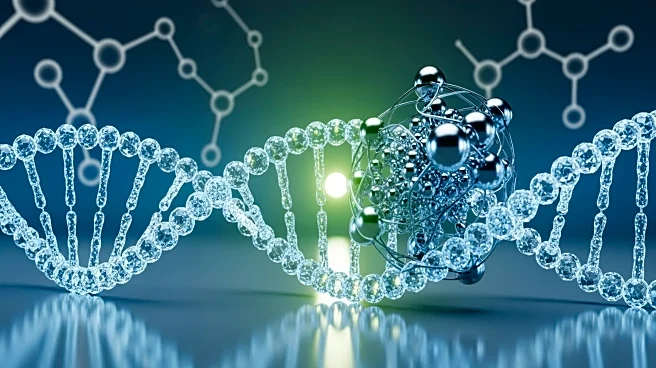What's Happening?
Novartis has announced a significant acquisition of Avidity Biosciences, a San Diego-based biotech company, for approximately $12 billion. This deal, which is the second largest in 2025 following Johnson
& Johnson's acquisition of Intra-Cellular Therapies, will see Novartis paying Avidity stockholders $72 per share, a 46% premium over the company's last closing price. The acquisition will provide Novartis with access to Avidity's late-stage RNA programs, including treatments for Duchenne muscular dystrophy (DMD), facioscapulohumeral muscular dystrophy (FSHD), and myotonic dystrophy type 1 (DM1). Avidity has recently reported a positive outcome from a pre-biologics license application meeting with the FDA for its lead DMD candidate, del-zota, with a submission planned for early next year. Additionally, Avidity's early-stage precision cardiology programs will be spun off into a new publicly traded company, led by Kathleen Gallagher as CEO.
Why It's Important?
This acquisition is a strategic move by Novartis to strengthen its position in the neuromuscular disease treatment market. By integrating Avidity's RNA-targeting delivery platform and its late-stage assets, Novartis aims to deliver innovative and potentially first-in-class medicines for progressive neuromuscular diseases. The deal is expected to unlock multi-billion-dollar opportunities, with product launches anticipated before 2030. This acquisition not only enhances Novartis' pipeline but also reflects the growing importance of RNA therapeutics in addressing unmet medical needs. Investors and stakeholders in the biotech and pharmaceutical industries are likely to view this acquisition as a positive development, potentially leading to increased investment and interest in RNA-based therapies.
What's Next?
The transaction is expected to close in the first half of 2026, following the separation of Avidity's precision cardiology programs into a new company. Novartis plans to leverage Avidity's pioneering antibody oligonucleotide conjugates platform to expand its global neuroscience pipeline. The acquisition is anticipated to facilitate the launch of new products, contributing to Novartis' growth strategy and enhancing its competitive edge in the neuromuscular disease market. Stakeholders will be closely monitoring the integration process and the subsequent impact on Novartis' financial performance and market position.









